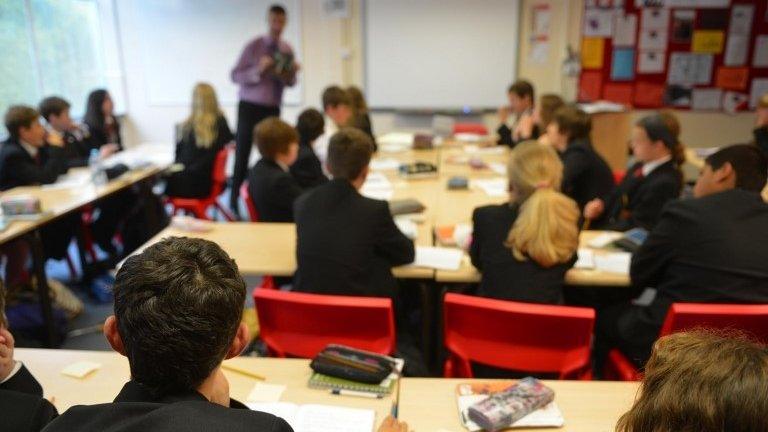Education 'top priority' in Scots election campaigns
- Published
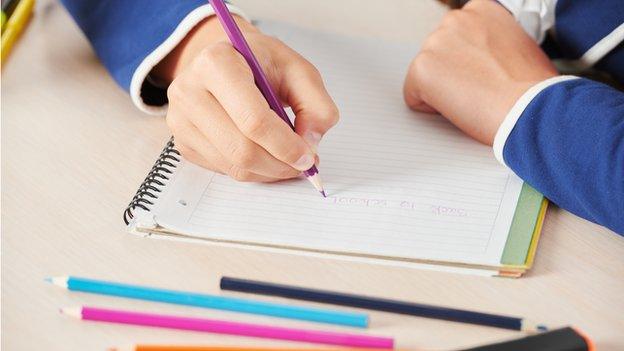
Scottish Labour have said early-years education would be the party's top economic priority
Scottish Labour leader Kezia Dugdale has pledged to make early-years education the party's top budget priority.
Education is to be a key battleground in May's Holyrood elections, with SNP leader Nicola Sturgeon also vowing to put it "front and centre".
Ms Dugdale said funding education "has to be a national priority again".
The Scottish Conservatives are also campaigning on the topic, calling for the creation of 10 "skills academies".
Ms Dugdale was the first of the party leaders to address the David Hume Institute on the subject of their vision for Scotland for the next five years.
She said investing in early-years education was "our most important economic policy", claiming education was an "easy target" for cuts after local authorities were squeezed in the recent draft budget.
'Radical action'
The Scottish Labour leader said: "In Scotland today the hardship of austerity is felt by too many and ambition and aspiration is felt by too few. The OECD found the achievement gap between the most and least deprived growing in our schools.
"So I have proposed that we take radical action to change the way we fund education, so that achievement and opportunity are not determined by how much a child's parents earn.
"We would introduce a Fair Start Fund which follows every child from a poorer family to school. £1000 for every child from a poor background in primary school, £300 for every child from a poorer family in nursery school. By linking funding to children we would ensure that every school has an attainment fund equal to its needs."
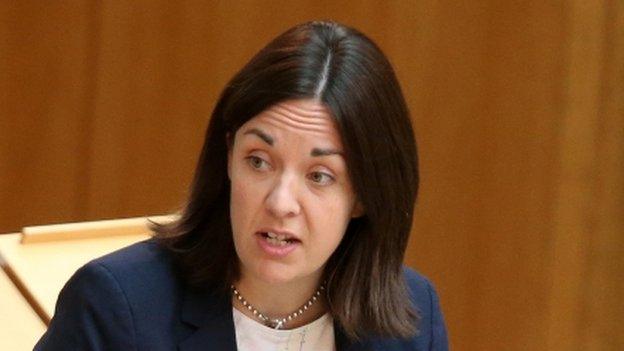
Ms Dugdale is the first of the Scottish party leaders to address the Hume Institute
Ms Dugdale's speech came on the same day as Ms Sturgeon announced £4m of funding to improve educational attainment in schools across Scotland.
The money, part of a £100m Attainment Scotland Fund announced last year, will be distributed between 57 schools to fund projects to improve literacy, numeracy and health and wellbeing.
Attainment gap
The first minister said: "I've made it perfectly clear that closing the attainment gap between Scotland's least and most deprived children is one of my key goals.
"We want teachers and pupils to get creative, be excited about learning and come up with imaginative approaches to it; to find out what works and share that with others.
"With education being key to the future of Scotland's children and in the future of Scotland's economic health, this is a wise investment."
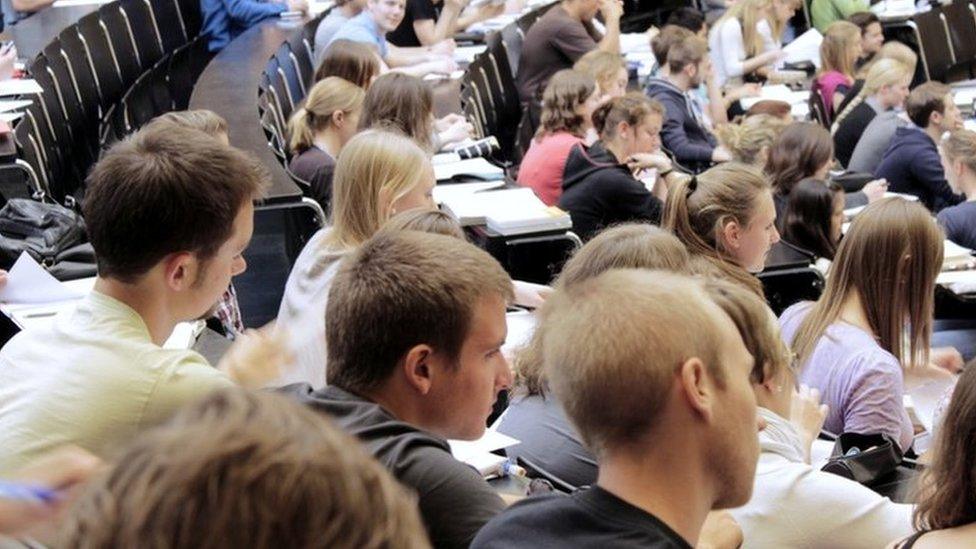
The Conservatives are focusing their policies on college education
Scottish Conservative leader Ruth Davidson picked the same day to announce an education policy of her own, calling for the creation of 10 new "skills academies"
The party has pledged an extra £60m to Scotland's colleges as part of its election platform, and wants to create 10,000 new apprenticeships by 2020.
'Absurd imbalance'
Ms Davidson said: "Scotland has a desperate need for a more skilled workforce - yet in recent years we've seen college places cut and funding reduced.
"We need to value a vocational education at least as much as an academic one. The current imbalance is absurd and desperately needs to be addressed.
"We must do better. By bringing industry and government together, we can make Scotland the skills capital of Europe."
The Scottish Liberal Democrats have also singled out education as an important policy area, calling for a "pupil premium" to commit additional funding to students from disadvantaged backgrounds.
Party leader Willie Rennie said Scotland's "once proud education system" had "slipped in world standing" under the SNP, adding: "Children and young people deserve a good quality education with nursery education and a pupil premium to give every child a chance of a good job."
The Scottish Greens said Scotland could have "a better education system that gives all young people the opportunities they deserve".
Children and young people spokeswoman Isla O'Reilly said: "Class sizes are the largest they've been since 2007, teachers are overworked and additional support-needs provision has been cut. Tackling these issues should be the priorities if we are to improve the chances of children from poorer backgrounds."
- Published10 January 2016
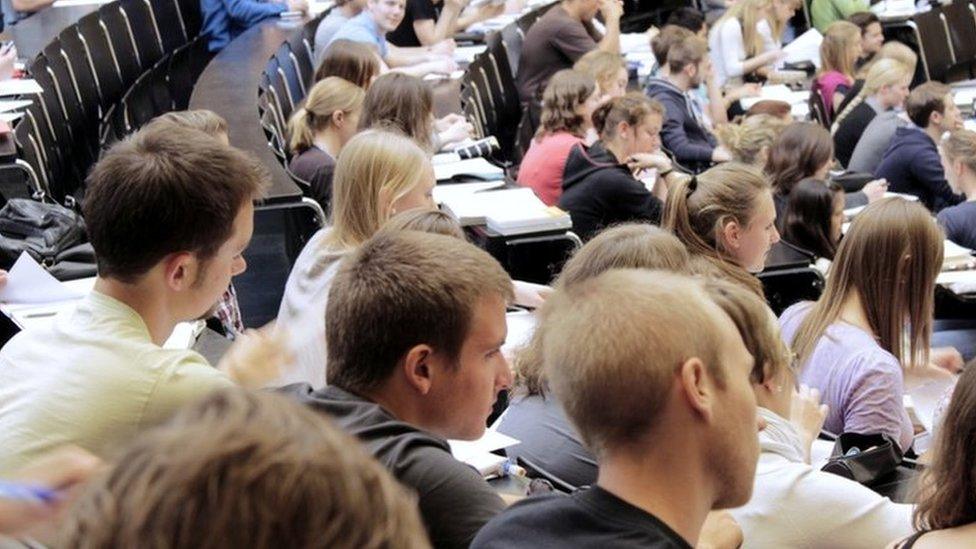
- Published5 January 2016
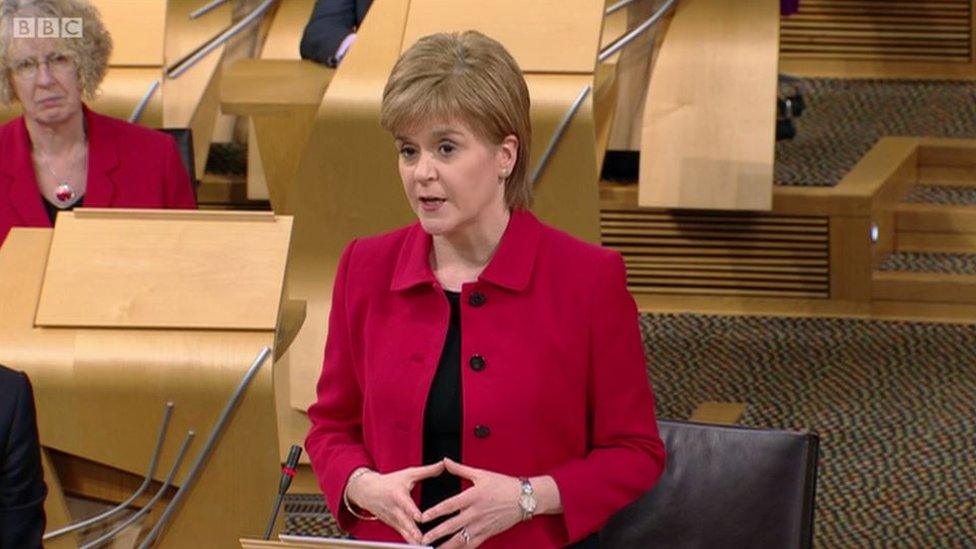
- Published12 January 2015
